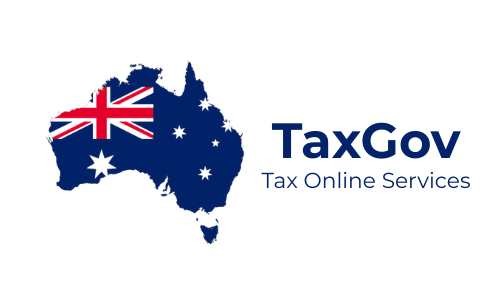- 1 How to apply for a TFN in the Australian Capital Territory
- 2 Understanding the TFN application timeline
- 3 Common challenges in obtaining a TFN quickly
- 3.1 How to get a TFN for a child as a parent
- 4 Key benefits of having a TFN in Australia
- 4.1 How to get a TFN for a child if born in Australia
- 5 What to do if your TFN application is delayed
- 5.1 How to get a TFN for a child when moving from overseas
How to apply for a TFN in the Australian Capital Territory
How to apply for a TFN in the Australian Capital Territory involves understanding the process and requirements set by the Australian Taxation Office (ATO). If you are residing in the ACT, the first step is to gather all necessary identification documents, such as a birth certificate, passport, or legal residency details. You can apply online or through a paper form, depending on your preference. The ATO has streamlined the process to make it as convenient as possible for applicants. Online applications typically require a MyGov account for identity verification, whereas paper applications are mailed directly to the ATO. It is crucial to ensure accuracy in the details provided to avoid delays. On average, it takes about 10 to 28 days to receive your TFN after your application is processed. However, this timeline can vary depending on demand and the completeness of your application.
Understanding the TFN application timeline
Understanding the TFN application timeline is critical for anyone applying for a Tax File Number in the Australian Capital Territory. The timeline is generally estimated between 10 to 28 days from the time your application is received by the ATO. This window accounts for both online and paper applications. Factors affecting the timeline include the applicant’s identity verification, the completeness of submitted information, and any peak processing periods which might extend the wait. Online applications tend to be processed faster due to the immediate verification of identity through MyGov. For those opting for the paper application route, consider mailing time as an additional factor. During high-demand periods, such as the start of the financial year, expect some delays. Applicants are advised to avoid common mistakes such as incorrect personal details or missing documents to prevent rejections or requests for additional information, which can prolong the process further.
Need help getting your TFN?
We can help you apply for your TFN quickly and easily. Let our team handle the process for you.
Common challenges in obtaining a TFN quickly
Common challenges in obtaining a TFN quickly typically revolve around the accuracy and completeness of your application. Many applicants encounter delays due to incorrect or incomplete personal information. Another common challenge is misplacing or misinterpreting requirements regarding identification documents. It is essential that all specified documents are valid and up to date to avoid rejection. Additionally, technical issues with online submissions can occur, primarily if there are large numbers of applicants using the system simultaneously. This can especially happen during the peak period at the end of the financial year, where submission systems may become sluggish. Moreover, when using the paper application process, applicants might encounter delays with postal services, which adds uncertainty to the timeline. To mitigate these challenges, timely submission, a thorough review of application details, and awareness of ATO guidelines are invaluable.
How to get a TFN for a child as a parent
How to get a TFN for a child as a parent includes understanding specific requirements tailored for minors. Parents can apply for their child’s TFN at any time. They must provide the child’s birth certificate or passport, along with their own identification details, for verification purposes. This ensures both the child and parent’s information matches ATO records appropriately. The application process remains similar, with forms accessible online via MyGov or through paper submissions. It is particularly beneficial if the child starts earning income, as a TFN ensures they are not taxed at the higher rate. For children involved in part-time work or certain investments, having a TFN simplifies tax processes and ensures compliance. Filing promptly, with correct information, circumvents any potential delays and aligns with their future financial engagements.
Key benefits of having a TFN in Australia
Key benefits of having a TFN in Australia extend beyond tax filing. Possessing a TFN is integral to participating fully in Australia’s financial system. It is essential for individuals who wish to work, start a business, or receive government benefits. Without a TFN, you might be taxed at the highest rate on any income you earn. A TFN also facilitates lodging annual tax returns and is necessary for applying for an Australian Business Number (ABN), accessing superannuation funds, and managing student loans. Moreover, possessing a TFN helps in maintaining accurate financial records, which benefits long-term financial planning and wealth management. Employers and financial institutions often require a TFN to process payments and manage accounts efficiently, highlighting its importance beyond mere taxation.
How to get a TFN for a child if born in Australia
How to get a TFN for a child if born in Australia generally follows a streamlined approach, largely due to existing records. Australian-born children have access to straightforward documentation through birth records stored with Australian registries. To apply for a TFN, parents should prepare the child’s birth certificate as part of the application. This, combined with the parent’s identification information, suffices for most cases. The ATO allows these applications to be completed online through the parent’s MyGov account, linking the child to the parent’s details. It’s imperative to ensure all documents are current and accurately filled out to avoid unnecessary delays in processing. For children who are beginning school or starting savings accounts, having a TFN early is advantageous and eases any government interactions or tax requirements later in life.
What to do if your TFN application is delayed
What to do if your TFN application is delayed often involves proactive steps and communication with the ATO. If your TFN has not arrived within the standard processing time, it is advisable to first check for any notifications via MyGov, as online applications can provide status updates. Ensure all documents and personal details provided were correct and that there were no errors in submission. For paper applications, confirm receipt by contacting the ATO directly. If necessary, consider visiting a local ATO office for further assistance. They can offer insight into possible issues or necessary corrective actions. Applicants should maintain patience while keeping informed, especially during periods of high application volume that can naturally extend wait times. Consistent follow-up is key without being overly aggressive, ensuring every step is adequately documented for reference.
Need help getting your TFN?
We can help you apply for your TFN quickly and easily. Let our team handle the process for you.
How to get a TFN for a child when moving from overseas
How to get a TFN for a child when moving from overseas involves additional verification steps due to international regulations. Upon settling in Australia, parents must apply for a TFN for their child by providing relevant documentation such as a passport and visa details. Parents should also be prepared to present their own residency credentials to support the application. The online application process through MyGov is accessible once parents establish residency, leveraging systems that link international documents to the ATO’s infrastructure. For families using paper applications, ensure all foreign documents are certified as required by ATO guidelines. Having a TFN enables the child to be integrated seamlessly into Australia’s financial system, which is necessary for any income they might earn or government benefits they might be eligible for.





